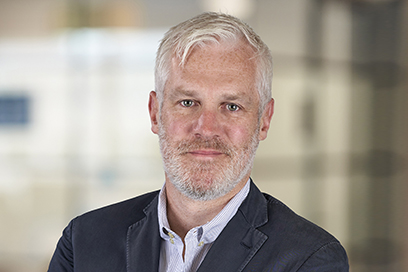“Healthcare is ever-changing and always challenging. Integrated care systems can deliver more for patients, but they require greater collaboration and partnership working. Investment in infrastructure and digital innovations may be necessary to change old ways of working and free up clinical time. We can help to shape, manage or accelerate this change, working with your people to define the strategies and deliver the projects that will ultimately lead to better health outcomes.”
Tom Keohane
Contact Tom
With our deep knowledge and experience of the public sector and the NHS...
...combined with learnings gained from the private business, our consultants can help you deliver lasting change that ultimately supports better patient outcomes.
A healthcare and NHS consulting firm that understands complexity
Healthcare is one of the most highly-regulated and complex industries so it’s not surprising that healthcare transformation programmes are among the most complicated and difficult. The pressure to justify change and deliver outcomes can be overwhelming – often while having to manage multiple stakeholders and work within tight budget constraints.
At Berkeley, we understand complexity. Our healthcare consultancy team specialises in transformation under the most challenging and high-stakes circumstances, including programme turnaround where a critical project needs major intervention. We’ve worked across the whole public healthcare system, from NHS healthcare providers and clinical commissioning groups to local authorities, central government, and regulators. We also have experience working with private healthcare providers, health insurance companies and medical suppliers.
Berkeley’s healthcare consultants can work with you to develop your strategy, secure senior leadership buy-in, drive system transformation, and enable care integration. For public sector organisations, we can help them continue their journey towards delivering the NHS Long Term Plan. We can adapt as a project evolves and always remain focused on the outcomes.
Sector
Pharmaceuticals and medical

I was impressed with Berkeley’s ability to grapple with the breadth of complex issues that this programme seeks to address - across the clinical, technical and business areas involved - and also to tune into and respect the sensitivities across our organisations. It felt like they were on our side and willing to do what it took to get the job done, but all the while I felt they were good people that I’ve enjoyed having working alongside me."
Deputy Chief Executive and Strategy Director, an NHS Trust
A successful Integrated Care System requires a clear strategy, increased collaboration, new ways of working, and innovative thinking. Local leadership is key, yet executive teams have never been more stretched than they are today. We can help you to build trust, break down the barriers to partnership working, and accelerate decision-making and agreement – so you can successfully meet health and care needs in your area.
At every level, our consultants can help deliver integrated care initiatives – from engaging system leaders to agree a clear way forward, to developing new models of care at ‘Place’ level, to facilitating the creation of Primary Care Networks at ‘Neighbourhood’ level.
How can you turn the Health Infrastructure Plan commitment to technology investment into a reality that works for your organisation? A successful digital transformation requires a structured and well-developed approach to planning, implementation and people change management – which is where Berkeley can help.
We can work with you to understand and reduce the burden of old technology, deliver the new systems you need, improve the integration of existing systems, and capitalise on data and new innovations such as AI.
We don’t just aim to deliver a mechanism. When done right, digital transformation should help achieve tangible far-reaching outcomes: meeting NHS-mandated standards, an improved staff experience, and better results for patients.
Electronic Patient Record (EPR) systems have become crucial to delivering both a safer patient care and a better staff working experience. But EPRs are among the most complex organisational transformation programmes. To be successful, they can’t be treated like any other large IT delivery project. We can support at every stage of your journey, enabling the robust clinical and operational engagement needed for success.
We have extensive experience of working directly with EPR suppliers and can identify the best and most feasible EPR programme that works for your organisation. We can help you overcome the risks, and successfully deliver not just the system but the benefits: better patient monitoring, data collection, clinical flexibility, and rigour and accuracy.
Done well, estates transformation is a rare opportunity to change more than just ‘bricks and mortar’. Any estate development can have a positive, measurable impact on internal capacity, the capability to deliver, and both patient and staff wellbeing.
But building new infrastructure is a significant financial undertaking, and already fraught with its own challenges. We help healthcare clients set up their estates transformation programmes for overall success. With our support, you too can develop more strategic thinking, get the most from your people, make the technology work for your organisation, and deliver your transformation objectives.
Collaborative and empowering healthcare and NHS consulting
Our experience of healthcare sector consulting means that we know what it takes to make change happen, whether that’s directly managing the programme to a successful outcome or setting you up for success to deliver change yourself. Our experienced consultants have a deep understanding of all the moving parts and can do the hands-on work where needed. We don’t take over, but partner with you collaboratively and constructively.
Our approach often involves developing the client organisation’s people and building their internal capability, including leadership development and individual executive coaching where needed. This allows the client to run the programme over the long term and take forward the necessary activities that we initiate.
We pay a lot of attention to effective clinical and stakeholder engagement. We’re able to align diverse sets of stakeholders across multiple organisations, bringing them together to agree on a clear direction, co-design solutions and achieve real change.
Whether you need hands-on support, some light-touch independent assurance, or just some advice, we can be there to help.
Clients often ask us…
Question 1
As a healthcare sector client, how do we ensure we’re set up to deliver a successful transformation?
Question 2
How do I shape an EPR programme with a clear business case that the board will support?
Question 3
How do I align all relevant stakeholders around a new model of integrated care and how are we going to deliver it?
Question 4
How can we bring together and align multiple sets of stakeholders from different organisations?
Question 5
How do we deliver lasting change across many diverse organisations and stakeholders?
Question 6
How do I achieve value for investment and real results when I have a limited NHS budget?
Question 7
How do I prioritise change elements if my budget forces me to have to pick and choose?
Question 8
How do we ensure this change programme leads to tangible benefits for patients?
Question 9
How do I ensure my estates strategy leads to better patient care and improved outcomes?









